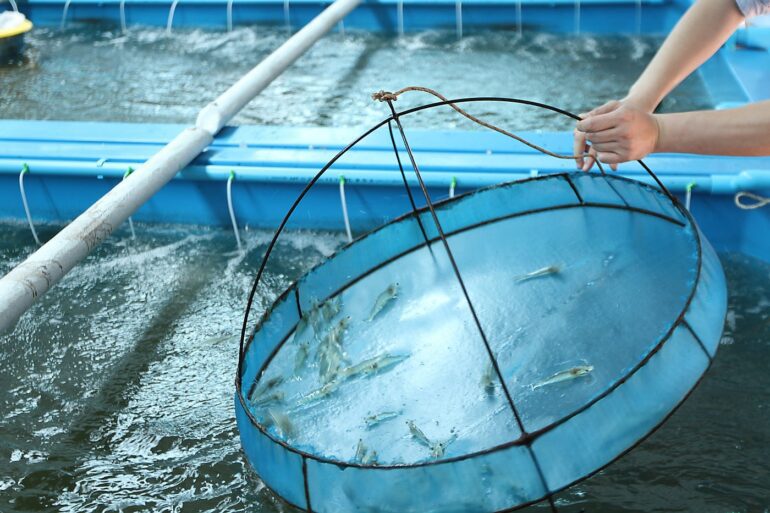TL;DR:
- A team of researchers has developed AI technology to detect and monitor stress, growth, population size, and mortality in farmed shrimp.
- The AI-based computer vision system achieves up to 95% accuracy in counting and measuring shrimp, even under challenging farming conditions.
- Online monitoring allows aquaculture companies to respond quickly to signs of stress and improve livestock management.
- The technology provides valuable data for optimizing growth and feeding models, as well as detecting stress symptoms.
- It addresses the needs of Europe’s land-based shrimp farms focused on sustainability and animal welfare.
- Oceanloop plans to expand its operations by building the largest and most sustainable land-based shrimp farm in the world.
Main AI News:
In a significant breakthrough for the aquaculture industry, a team of dedicated researchers has developed an innovative artificial intelligence (AI) technology capable of detecting and monitoring stress, growth, population size, and mortality in shrimp. This cutting-edge AI-based computer vision system, achieving up to 95% accuracy, marks a milestone in the quest for sustainable and ethical shrimp farming practices.
The remarkable AI-powered computer vision system, a result of the collaborative efforts between the Alfred Wegener Institute, Helmholtz Centre for Polar and Marine Research (AWI), and leading shrimp farming pioneer Oceanloop, offers aquaculture companies an unprecedented understanding of their livestock’s performance. By precisely counting the number of shrimp and accurately measuring their length in real-time, even in challenging farming conditions such as high stock densities and cloudy water, the technology provides invaluable insights for farmers.
Stephan Ende, the project’s coordinator at AWI, highlighted the significance of online monitoring, stating, “Mortality rates in shrimp can reach alarming levels of up to 50 percent, far surpassing those of any other livestock. With this new technology, aquaculture companies can swiftly respond to signs of stress among their stock, helping to mitigate potential losses.”
The initial prototype was put to the test in 2022 at Oceanloop’s research and development farm in Kiel, Germany. Leveraging the capabilities of a modern smartphone installed above the water’s surface, the system automatically captured images of the shrimp every minute, transferring the live data to a local server. Next, computer-vision-based algorithms accurately counted the shrimp population and measured the length of individual specimens.
The resulting data was seamlessly integrated into the fish farming software package AquaManager®, enabling farmers to optimize growth and feeding models based on real-time information. Additionally, the technology proved effective in visually detecting stress symptoms in the shrimp population, acting as an early warning system while also validating the stock density model.
Bert Wecker, Co-CEO of Oceanloop, emphasized the groundbreaking nature of this bleeding-edge technology, stating, “Our ability to precisely determine the density for each size group using this technology significantly improves survival rates, growth, and feed efficiency. It represents a major leap forward in our efforts to develop sustainable and efficient shrimp farming practices.”
Conclusion:
The development of AI technology for shrimp farming represents a significant milestone in the market. It enables aquaculture companies to enhance their livestock management by providing real-time data on stress, growth, and population size. With improved monitoring and early detection capabilities, farmers can mitigate losses and optimize feeding and growth models.
This breakthrough technology aligns with the growing demand for sustainable and ethical practices in the shrimp farming industry. As Oceanloop plans to scale up its operations, it sets the stage for increased production volumes and sets new benchmarks for the market. The integration of AI in shrimp farming opens up new opportunities for improved efficiency, risk reduction, and transparency in the value chain, paving the way for a more prosperous future in the industry.

